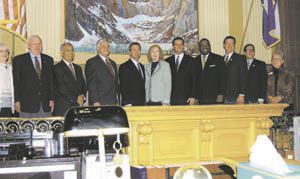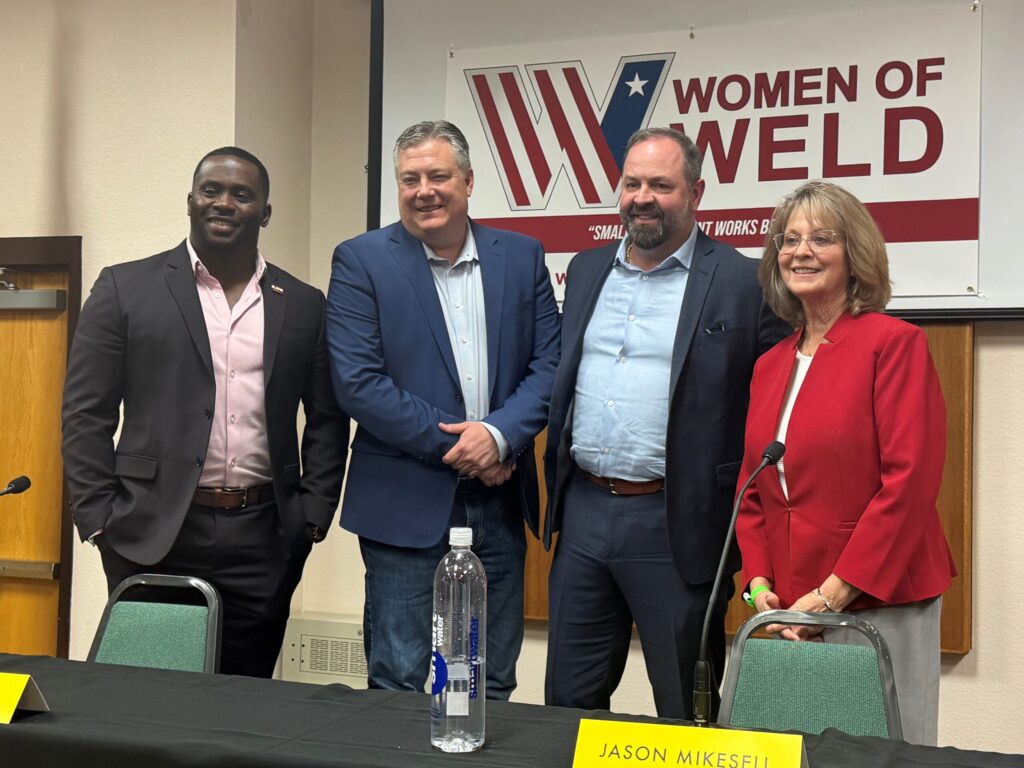How does the future of D-11 look without collective bargaining?
Following the Colorado Springs D-11 Board of Education’s decision to end their 56-year-old collective bargaining agreement with its teachers’ union, the question on many people’s minds is: What exactly is going to change?
“Unfortunately, we don’t know ultimately what that all is going to look like,” Colorado Springs Education Association President Kevin Coughlin said.
The short-term answer is “not much,” since the current agreement expires on June 30. After that, the district plans to shift its approach to ensure employee equity and fairness like neighboring school districts without a master agreement.
Shortly after the vote Wednesday, the board sent out a mass email to D-11 community members informing them of their decision and their plan to revise the employee handbook that “will be written with input from every employee group.”
D-11 board votes to end master agreement with teachers’ union
These groups include district executive support professionals representatives, executive professionals representatives, CSEA representatives and non-union teachers. The board plans to discuss the handbook next month at a work session.
“I think the union probably has a place, absolutely. But when we’re talking about D-11, CSEA is the sole representation of teachers and only about 60% of the teachers,” D-11 board Vice President Jill Haffley said shortly after the meeting. “So, the other 40% go without any kind of representation of their own choosing. They’re forced to choose something like CSEA and we’re really about choice here.
“CSEA still has a seat at the table. That’s not the issue. The issue is: Let’s allow some teachers to have some choice in their own lives.”
In the message, the board noted that the current salary schedule, benefits, training, working conditions and other conditions will remain in place through the current school year and that all new state money through the 2025 School Finance Act will go toward future compensation and benefits.
In the same message, they went on to tout the pay raises, health benefits and retention of teaching positions the district achieved in recent years along with its new policies addressing attendance and behavior issues and cellphone use in schools.
D-11 finalizes policy prohibiting cellphone use ahead of school year
In his own email to staff following the board’s decision, D-11 Superintendent Michael Gaal also emphasized the improvements the district has experienced regarding student and school performance and district enrollment.
“District 11 is on the rise, and we will not stop,” Gaal wrote. “Nothing will stand in the way of delivering on our promise to give every student access to the high-quality instruction they need to succeed.”
D-11 also launched a page answering frequently asked questions about the master agreement on its official website that includes details on teachers’ planning time, treatment of probationary and non-probationary teachers and other employee benefits currently in place through the master agreement.
The answers to many of the questions reaffirm the district’s commitment to the terms agreed upon through the current school year, but it’s what may be implemented afterward that has educators like Coughlin concerned.
Coughlin anticipates that many of the amenities he’s granted with his current position with the union like access to certain buildings and meetings and the ability to be out of the classroom will be lost. Other teachers fear that the district may adopt a performance-based pay model or take away the salary schedule currently in place.
While the board repeatedly made the case that the master agreement ensured a lack of accountability for the union, Coughlin argues that the opposite will now be the case without the agreement.
“We can assume that a lot of things will not be in existence [going forward], but ultimately we don’t know what they are going to allow or not allow or change on the fly now that, without the master agreement, there’s nothing legally binding them to be accountable,” he said.
Ahead of their vote, multiple board members noted their distinction as elected officials and that their accountability lies with the voting public.
D-11’s FAQ page also details the parameters around “work stoppages,” which refers to staff absences en masse that may lead to a school closure for the day. It states that union representatives cannot lawfully encourage the disruption of instruction and may face legal action if found to be doing so.
It also states that teachers who knowingly do so without securing a substitute teacher are subject to leave without pay for that day.
D-11 teachers haven’t ruled out measures like walkouts or a strike, but Coughlin said there’s a good chance the current year will be the last for some.
“Oh, I believe so,” he said when asked if teachers might leave the district.
“Especially when things start to transpire where rights are infringed upon. Or, when the handbook comes into play and things aren’t honored and there’s no due process for members to work through, then I think you’re going to see a lot of that.”
When asked about this possibility following Wednesday’s vote, Haffley said she’s “confident” in the district’s ability to attract and retain teachers.
“I hope teachers don’t leave the district, we don’t want things to end that way. I want teachers to give this a chance and see that something very positive can come from this.”











